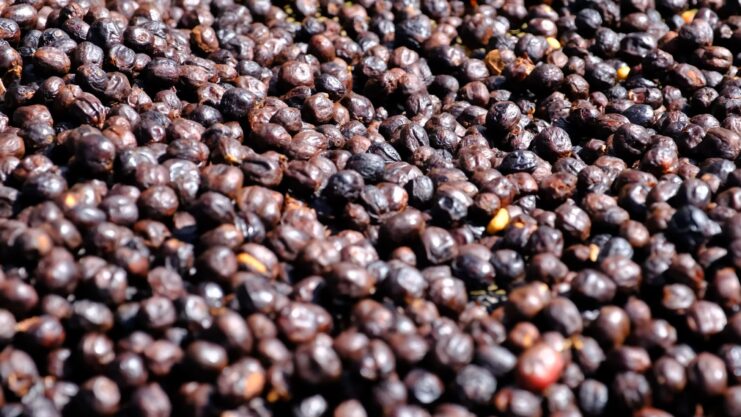Coffee, a beloved beverage for many, has been the subject of numerous health studies over the years. One of the most intriguing findings is its potential role in reducing the risk of prostate cancer. In this comprehensive guide, we’ll delve deep into the research, shedding light on how your morning cup of joe might be offering more than just a caffeine boost.
Prostate cancer is one of the most common types of cancer in men. It begins when cells in the prostate gland start to grow uncontrollably. While some types grow slowly and may need minimal or even no treatment, other types are aggressive and can spread quickly.
The prostate is a small gland in men that produces seminal fluid, which nourishes and transports sperm. Prostate cancer can be asymptomatic in its early stages, but as it progresses, it may present symptoms like difficulty in urination or erectile dysfunction.
Coffee Consumption: A Global Overview

Coffee is more than just a beverage; it’s a global phenomenon. From the bustling coffee shops of Seattle to the espresso bars of Rome, coffee is deeply embedded in various cultures around the world.
The global love affair with coffee is not new. Its rich history traces back centuries, from ancient Ethiopian ceremonies to the coffeehouses of 17th-century Europe. Today, it’s estimated that over 2 billion cups of coffee are consumed worldwide every day.
The Science Behind Coffee and Prostate Cancer
Recent studies have suggested a link between regular coffee consumption and a reduced risk of prostate cancer. But how does this work? Let’s dive into the science behind this fascinating discovery.
Bioactive Compounds in Coffee
Coffee is a complex beverage containing hundreds of bioactive compounds. Some of these, like antioxidants, have been shown to reduce inflammation, improve insulin sensitivity, and even neutralize harmful free radicals. These properties might play a role in coffee’s potential cancer-fighting abilities.
Research Findings on Prostate Cancer
Several epidemiological studies have observed a lower risk of prostate cancer among regular coffee drinkers. For instance, a study published in the International Journal of Cancer found that men who consumed more than three cups of coffee per day had a 53% lower risk of prostate cancer than non-coffee drinkers.
Benefits of Coffee Beyond Prostate Cancer

While the potential link between coffee and reduced prostate cancer risk is compelling, coffee’s benefits don’t stop there. This beverage is packed with nutrients and antioxidants that offer a range of health advantages.
Regular coffee consumption has been linked to a lower risk of heart disease. The antioxidants in coffee can help reduce the inflammation that might lead to cardiovascular disease.
Coffee can also play a role in mental health. Caffeine, its primary psychoactive substance, can enhance mood, alertness, and cognitive function. Some studies even suggest that coffee drinkers have a reduced risk of depression.
Potential Risks and Considerations
Like any food or drink, it’s essential to consume coffee in moderation. While it offers numerous health benefits, excessive consumption can lead to potential risks.
Some individuals are more sensitive to caffeine than others. High intake can lead to restlessness, insomnia, headaches, dizziness, fast heartbeat, and other symptoms in these individuals.
Excessive coffee consumption has been linked to decreased bone density, increasing the risk of fractures. It’s crucial to balance coffee intake with a diet rich in calcium and vitamin D.
The Role of Coffee in Other Cancers
While the link between coffee and prostate cancer is promising, researchers have also explored its relationship with other types of cancers.
Some studies suggest that women who drink coffee regularly may have a slightly lower risk of certain types of breast cancer. The antioxidants and phytochemicals in coffee might be responsible for this protective effect.
Among all the cancers, the association between coffee and reduced liver cancer risk is the most consistent. Regular coffee consumption has been linked to a significantly lower risk of hepatocellular carcinoma, the most common type of liver cancer.
How to Brew the Perfect Cup
To maximize the health benefits of coffee, it’s essential to brew it correctly. The method you choose can influence the concentration of beneficial compounds in your cup.
Opt for organic, shade-grown coffee beans whenever possible. These beans are grown without synthetic pesticides and tend to have higher concentrations of antioxidants.
While drip coffee makers are the most common, French press and espresso methods can produce coffee with higher concentrations of beneficial compounds. However, it’s essential to avoid over-extraction, which can make the coffee bitter and reduce its health benefits.
The Global Impact of Coffee Production

Coffee is a major global commodity, and its production has significant environmental and social impacts.
Deforestation, water consumption, and pesticide use are major environmental concerns in coffee production. Choosing shade-grown and organic coffee can help mitigate some of these impacts.
Coffee farming provides livelihoods for millions of people worldwide. However, fluctuating coffee prices can lead to economic instability for farmers. Fair Trade coffee ensures that farmers receive a fair price for their beans, promoting economic sustainability.
FAQs
How much coffee is safe to consume daily?
Most research suggests that moderate coffee consumption of 3-4 cups daily is safe for most people and might be beneficial.
Can I drink decaffeinated coffee and still get the benefits?
Yes, many of the beneficial compounds in coffee are still present in decaffeinated versions. However, the exact health benefits might vary.
Does the roast level (light vs. dark) affect coffee’s health benefits?
Both light and dark roasts have health benefits. However, light roasts tend to have higher concentrations of certain beneficial compounds, while dark roasts have others. It’s a matter of personal preference.
Is it okay to add sugar and cream to my coffee?
While coffee itself is low in calories, adding sugar and cream can increase its caloric content. If you’re concerned about health, consider using natural sweeteners or plant-based milk alternatives.
How does instant coffee compare to brewed coffee in terms of health benefits?
Instant coffee still offers health benefits, but it might have slightly lower concentrations of some beneficial compounds compared to freshly brewed coffee.
Can children and pregnant women drink coffee?
It’s advisable for children to avoid caffeine. Pregnant women should limit their caffeine intake and consult with their healthcare provider about coffee consumption.
Conclusion
Coffee, with its rich history and cultural significance, is more than just a morning pick-me-up. The potential health benefits, especially concerning prostate cancer, make it a beverage worth savoring. As with everything, moderation is key. So, the next time you sip your coffee, take a moment to appreciate not just its flavor but also its incredible health-promoting properties.












